It’s one of the worst feelings when your ATV won’t start because of a dead battery. That’s why I recommend you always hook your battery up to a charger if it’s going to be sitting for more than a couple weeks.
There are a few reasons I hook my battery up to a charger.
1- The battery died because I left the key in the on position.
2- During the winter or long periods of no use.
The battery could die from leaving the key on or maybe a power wire is shorting somewhere draining the battery. I hook my battery up to a smart charger throughout the winter to keep the battery fresh, that way my ATV will start right up in the spring.
To charge your ATV battery. Pop off the side panel protecting your battery from the elements, and then connect your smart charger to the battery terminals. To fully charge, leave the charger connected for about 4-5 hours.
Once you have your ATV and riding gear, the very next thing you should get is a smart charger. If you have a kick start or pull start, this won’t be as important. But for me, my ATV is electric start and having a good battery is essential.
The charger I use and recommend is a Ctek Smart Charger found here on Amazon. It’s sold at a good price (around $60-70) and has all the connections for any brand of battery your ATV has. I chose this battery because of its price and how easy to use it is. This charger will turn itself off when the battery is full saving you costly damage that can occur from leaving a battery on a charger for too long.
There are plenty of cheaper options you can find for ATV battery chargers. But, most of them are simple trickle chargers that you have to make sure you unplug as soon as the battery is done charging. I found it to be a big hassle having to set an alarm and run out to check on the battery all the time. With this charger I was able to set it and forget it. Which I love for leaving the battery on the charger all winter.
Getting a good charger will save you money in the long run anyways. If it saves you even one dead battery it basically paid for itself already. It’s definitely worth the money to get a decent charger, and you’ll be glad you have it when you need it.
If it saves you even one dead battery it basically paid for itself already. It’s definitely worth the money to get a decent charger, and you’ll be glad you have it when you need it.
Some people prefer the Battery Tender 1.25 amp found here on Amazon, which is fine, they work great too. But I’ve had no problems with my Ctek Smart Charger and I would buy another one when the time comes.
This part is easy and can be done with a few simple tools. Take a wrench or screwdriver and remove the side panel of your ATV. Some ATV’s require that you remove the seat first, sometimes when you remove the seat, the battery is easily accessible right from there. You should be able to easily see where the battery is at this point.
Once you know where the battery is and can access it easily, you will just remove it from the ATV. To remove the battery just unhook the wires connecting the battery to the rest of the ATV, and sometimes there is a strap that holds the battery in place that can be easily removed.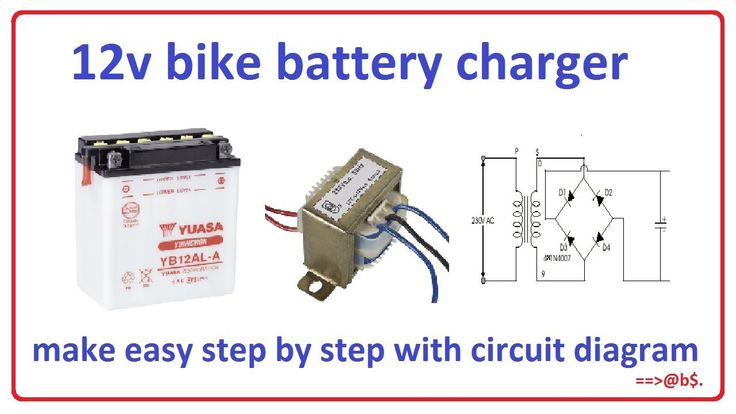 If you don’t want to remove the battery from the ATV to charge it, that is fine, just make sure you unhook the wires from the battery to the rest of the ATV.
If you don’t want to remove the battery from the ATV to charge it, that is fine, just make sure you unhook the wires from the battery to the rest of the ATV.
To make leaving the battery on the ATV a little easier I got this Ctek Comfort Connector found here on Amazon. This has made charging the battery so much easier for me. And, it has a fuse to protect from power surges. Now I don’t even unhook the battery, I just plug the charger right into the connector and it’s done. I also got a similar setup for my motorcycle I liked it so much.
If you don’t get the quick connector, that’s ok, the smart charger has clamps that will connect to any style battery like jumper cables would. Simply connect the charger to the battery terminals and plug it in to charge the battery.
Here’s a helpful video to show you how to charge the battery.
The quickest easiest way is to try charging the battery and see if it takes a charge. If it does, great! If not, you might need a new battery. If they battery was left out all winter, you probably need a new one. It is worth seeing if the smart charger will charge it, but it’s not likely.
I don’t recommend getting a battery from a local parts store unless they have multiple options to choose from. A lot of the time the price is just too high. Our local parts store was selling a simple ATV battery for almost $100. After looking around online I found the same exact battery for half the price. If you can wait a couple days for shipping, just get yourself an ATV battery on Amazon.
It is always a better idea to charge the battery slowly. Charging slowly will extend the life and quality of your battery. When you charge a battery too fast, it could damage the battery and affect the retention rate. What I do I charge my ATV batteries at .8-1 amps, which takes longer, but ensures my battery will last longer.
When you charge a battery too fast, it could damage the battery and affect the retention rate. What I do I charge my ATV batteries at .8-1 amps, which takes longer, but ensures my battery will last longer.
A normal charge time should be around 5 hours to get a full charge. If you have a smart charger you can just leave it overnight and not have to worry about it.
If you don’t charge your battery throughout the winter, you will likely have a dead battery come spring time. Simply take your battery out of your ATV and hook it up to a decent smart charger throughout the winter. This way you won’t be buying a new battery every year.
You could use trickle charger for this as well, just make sure you get one that shuts off when the battery is charged or you could damage the battery.
Getting a good charger and taking care of your ATV’s battery will save you more money in the long run, and you will be happy you did.
Sharing is caring!
Even though your ATV’s engine charges the battery while you are riding (via the stator), it’s usually not enough to keep the battery topped up.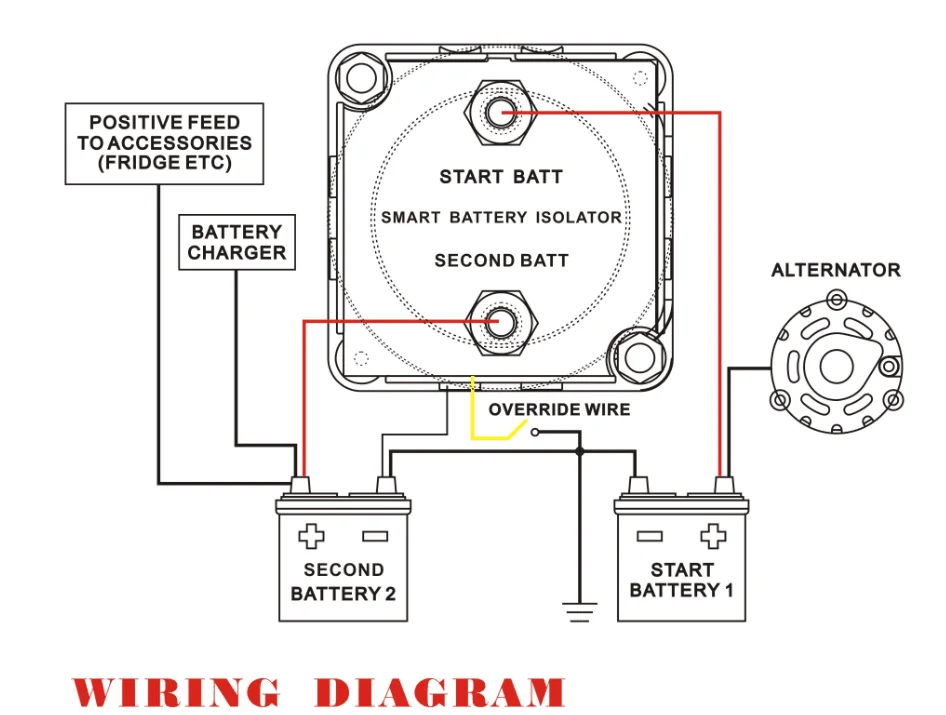
You may even find that starting the engine, using headlights, and operating equipment such as a winch use more power from the battery than the engine puts in.
Unless you often go on long rides, you could easily end up with a dead battery. Or your battery may stay in a perpetually low charge condition, which reduces its lifespan.
It’s also essential to keep the battery charged if you are not going to use the ATV for a long time. So one of the things you’ll need to figure out, if you own an ATV, is how to charge the battery from an external power source.
In this guide, we explain all the options you have from manual chargers and car chargers to smart automatic chargers.
What You'll Learn Today
The right charger for your ATV battery depends on what kind of battery you have.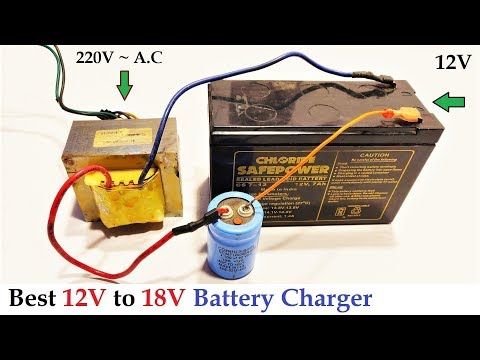
The first step is identifying which battery is in your ATV. It should be labelled clearly on the side.
If you can’t read the label or there isn’t one, here’s how to tell which battery you have.
If it has liquid inside, and has removable caps on top, that’s a flooded lead acid battery. It’ll also have a partially clear housing, allowing you to monitor the level of the liquid inside.
If it has liquid inside, but has a flat top with no caps, that’s a sealed lead acid battery. It can also be a VRLA battery.
If the battery looks like a lead acid battery, but has a flat top and you can hear any liquid inside, that’s a GEL-cell battery or an AGM battery.
If the battery is small and very light, that’s a lithium ion battery.
All ATV batteries, regardless of the type, need a 12V charger that delivers a low current of between 1 and 3 amps.
Flooded lead acid, sealed lead acid, VRLA and AGM batteries can be charged with a manual charger. However, you need to monitor battery charge using a voltmeter to ensure you do not overcharge it.
However, you need to monitor battery charge using a voltmeter to ensure you do not overcharge it.
This is especially important for sealed lead acid and VRLA batteries, as there’s no way to top them up after overcharging and they could get permanently damaged.
For Gel batteries, you need a charger specifically for this type of battery. The same goes for lithium ion; look for a lithium ion-compatible charger.
If you want to avoid all this hassle, we recommend getting an automatic battery charger. Unlike a manual charger that needs to be turned off or the current setting changed when the battery gets to a certain level, you can connect an automatic charger and walk away.
It automatically recognizes the battery voltage, and delivers the right voltage and current. It’ll automatically stop charging, or go into trickle mode when the battery is full. So you never have to worry about damaging your ATV battery.
You can charge the ATV battery while it’s still in the vehicle, or you can take it out. Just make sure you charge it in a well ventilated area. The charging process produces flammable gasses.
Just make sure you charge it in a well ventilated area. The charging process produces flammable gasses.
If you are using a manual charger, check the voltage of the battery using a voltmeter. This will tell you how low the battery is, and how much time it’ll take to recharge it.
Next, connect the red lead of the charger to the positive terminal of the batter, and the negative lead to the negative terminal or a piece of metal around the engine area.
Set the manual charger to the right charging current. To be safe, select a current that’s no more than a tenth of the battery’s Ah. For a 30Ah battery, set the current on the charger to no more than 3A.
Plug in the charger and start the charging process. Keep monitoring the battery charge level. When it gets to 80%, turn down current to half what it is. This allows the battery to fully charge.
When it’s fully charged, switch off the charger immediately. If you’ll be leaving the battery sitting for a long time, you can turn on maintenance mode, if the charger has one or buy a battery tender to keep it charged.
If you have a traditional flooded lead acid battery, here’s a detailed video on how to fill and charge it.
https://youtu.be/wFYR49WGI74Video can’t be loaded because JavaScript is disabled: Yuasa Battery Basics – Battery Charging (https://youtu.be/wFYR49WGI74)
An automatic charger is much easier to use. You don’t need to check battery voltage or monitor the battery.
All you need to do is select the type of battery and voltage. Most automatic/intelligent chargers come with dedicated charging modes for AGM, lithium ion, Gel, and other types of batteries.
Connect the charger to the battery and leave it to charge. It’ll safely charge the battery and keep it topped off without overcharging it.
Car battery chargers typically output 10 amps of current, which is too much for an ATV battery. It can overheat and permanently damage the battery.
Unless the charger has a setting to limit current to less than 3 amps, do not use a car charger.
If you can reduce current to under 3 amps, use the same procedure as a manual charger.
Yes, you can charge your ATV battery with your car, but only to jumpstart it. This is useful if your ATV won’t start because the battery is dead.
Use jumper cables to connect the car battery to the ATV battery. Do not start the car. That might deliver too much power and damage the small ATV battery.
The car battery has enough charge to revive a dead ATV battery. Disconnect the jumper cables after a few minutes and try starting the ATV again.
To emphasise, this method is just for jumpstarting. Do not use it to charge the ATV battery to capacity since you cannot control how much current and voltage it’s receiving.
A dead battery can be impossible to charge with most smart chargers. That’s because the battery voltage is too low to be detected by the charger. So you need to either jumpstart the battery (as we’ve described above) or trick the charger to charge the dead battery.
That’s because the battery voltage is too low to be detected by the charger. So you need to either jumpstart the battery (as we’ve described above) or trick the charger to charge the dead battery.
To trick the charger, you’ll need a healthy charged battery. Use jumper cables to connect the two batteries. Then connect the battery charger to the dead battery.
Once it starts charging, you can disconnect the healthy battery.
Note: Some advanced smart chargers nowadays can detect very low voltages, allowing them to charge dead batteries.
To estimate how long it’ll take to charge a fully discharged battery, divide its Ah rating with the current you are charging at.
A 30Ah battery being charged at 3A will take about 10 hours to get to full charge.
However, the actual charging time will vary depending on temperature, the health of the battery, and the quality of the charger.
For empty batteries, charging time could be anywhere between 10 and 20 hours. A half full battery will take between 6 and 10 hours to recharge.
Yes, you can overcharge an ATV battery. This happens if you use a charger that delivers too much current or voltage. Leaving a manual charger plugged in even after the battery is full can also overcharge it.
Overcharging can damage a battery, often permanently. This is especially so for sealed batteries, where you can’t open caps and replenish the electrolyte.
Yes, you can use a car battery in your ATV, as long as it is a 12V battery. Any 12V battery will be compatible with your ATV’s 12V system.
In fact, many ATV owners say they’ve fitted bigger batteries in their ATVs to operate winches, ploughs, heaters, and other power-hungry ATV accessories and equipment.
That said, there are two things to keep in mind before you use a car battery in your ATV.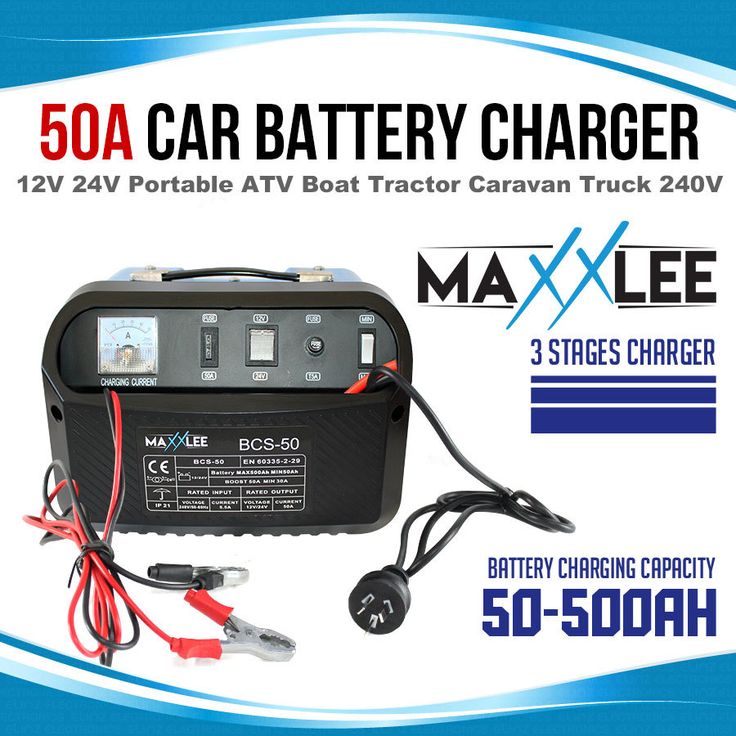
The first one is weight.
ATV batteries are smaller and lighter than big car batteries. Before you switch to a heavy car battery, make sure the added weight is not going to be an issue. Also, check to make sure you have the space for a larger battery.
Two, you’ll need to charge the battery regularly.
The stator on ATVs struggles to keep the small ATV battery charged. It’ll be ineffective when connected to a high-capacity car battery.
So you’ll need to charge the battery often to keep it topped up. This means investing in a good quality battery charger.
In this case you can get a 10A battery charger to safely charge the car battery.
Electric ATVs are rapidly gaining popularity due to their efficiency and environmental friendliness. But many riders still do not know how to charge an ATV on a battery. Improper charging reduces the battery life or the battery loses its capacity quickly. Therefore, let's figure out how to charge a children's ATV and consider the key recommendations of experts.
Therefore, let's figure out how to charge a children's ATV and consider the key recommendations of experts.
There are two ways to recharge the ATV battery. The first and easiest is to connect the charger to the appropriate connector. All electric cars and scooters are charged in a similar way, although not all quadrics have a similar socket.
If the ATV does not have a charging port, the rider will have to connect the battery directly to the charging station. To do this, you need:
It is important to note that lithium batteries have a charge control board. This means that after a full charge, the process stops. Although overcharging the battery is still not recommended. nine0003
This means that after a full charge, the process stops. Although overcharging the battery is still not recommended. nine0003
Another important question many riders are wondering is how to charge an ATV battery with an in-car charger. Yes, such a procedure is possible, but you need to properly configure the charger. For recharging, you can only use devices with adjustable charging current and the ability to set its minimum level (0.5-0.7 A).
Important : The optimal current for battery charging is 1/10 of the battery capacity (in Amps).
Each vehicle's user manual lists the optimum battery charging time. On average, this figure is 6-12 hours. The charging time depends on the generation of the battery, its capacity and the characteristics of the charger. Don't forget to charge the battery, though. If the battery has 30-40% capacity left, the recharging time should be reduced.
But what if you don't know how long to charge your ATV battery? In this case, you need to almost completely discharge the battery and charge it for 8 hours. After that, the battery should be installed on the quadric, and the charge level should be assessed. If the indicator shows 100%, next time you need to charge the battery for 6-7 hours. In this way, you can determine the optimal recharging time. nine0003
Also remember that overcharging is the main enemy of batteries. It is strongly not recommended to leave the battery connected to the network for 15-20 hours. This leads to a decrease in battery capacity and, accordingly, a decrease in the operating time of the quadric.
Knowing how long it takes to charge an ATV, you can make a schedule for recharging it. For example, the battery can be connected to the network in the evening or after each trip. You can also purchase a replacement battery, thereby increasing the riding time on the ATV. nine0003
The battery of any electrical equipment must be properly maintained. Violation of the recommendations may lead to a decrease in battery capacity or damage to it. To avoid such problems, it is recommended:
Violation of the recommendations may lead to a decrease in battery capacity or damage to it. To avoid such problems, it is recommended:
Separately, it is worth mentioning the "buildup" of the battery. Immediately after purchasing the equipment, you will need to fully charge and charge the ATV several times (2-3 times).
Most riders store their bikes before winter. And in order for the device to be ready for operation in the spring, it must be properly preserved. Preparing an electric quad bike for wintering is quite simple, you just need to find a warm and dry place to store the quad.
Preparing an electric quad bike for wintering is quite simple, you just need to find a warm and dry place to store the quad.
Another important conservation point is battery preparation. Before wintering you need:
Note : If you leave the quad battery in the cold, the battery will simply "leak" and stop working.
11/16/2020 7986
Buying a children's ATV or its adult counterpart is not just about being a rider.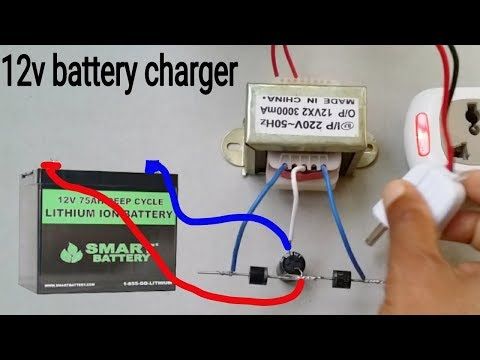 This technique requires special attention. As a rule, the owners of this motorcycle often do not pay enough attention to charging the battery, which can cause it to fail almost every season. Remember, if you charge your ATV battery correctly, it will last you many times longer.
This technique requires special attention. As a rule, the owners of this motorcycle often do not pay enough attention to charging the battery, which can cause it to fail almost every season. Remember, if you charge your ATV battery correctly, it will last you many times longer.
To avoid premature battery failure and reduced capacity, follow these guidelines:
Always follow the connection diagram when installing the battery in the ATV. You need to start by connecting the positive terminal. Be careful not to reverse the polarity as this can cause both the fuse to blow and the battery to explode.
If the vehicle battery suddenly stops charging, there may be several reasons for this:
The first signs of regulator relay failure are when the ATV battery starts to drain too quickly. Diagnosis of such a breakdown is carried out by measuring the resistance with a voltmeter at the battery terminals. Repairing any electrical equipment of an ATV is a rather complicated process that a true professional should perform.
Often the best solution when a battery or regulator fails is to replace it with a new one. It is much easier to prevent this kind of breakdown than to fix it later. That is why it is necessary to charge the battery of motor vehicles in strict accordance with the requirements of the manufacturer.
There are two ways to charge the child's ATV battery with the charger. The easiest of them is to connect the charger to the appropriate connector on the motorcycle. True, such a nest is not available on all models of ATVs. If there is no such connector, then the battery should be connected directly to the charger. The battery is charged as follows:
The easiest of them is to connect the charger to the appropriate connector on the motorcycle. True, such a nest is not available on all models of ATVs. If there is no such connector, then the battery should be connected directly to the charger. The battery is charged as follows:
Lithium ATV batteries usually have a board that monitors the battery level. But even in this case, it is strongly not recommended to charge the device longer than necessary. nine0003
Each ATV gel battery manufacturer provides detailed charging instructions. It is very important to choose the right charger with the ability to adjust the amperage in order to avoid overcharging the battery.